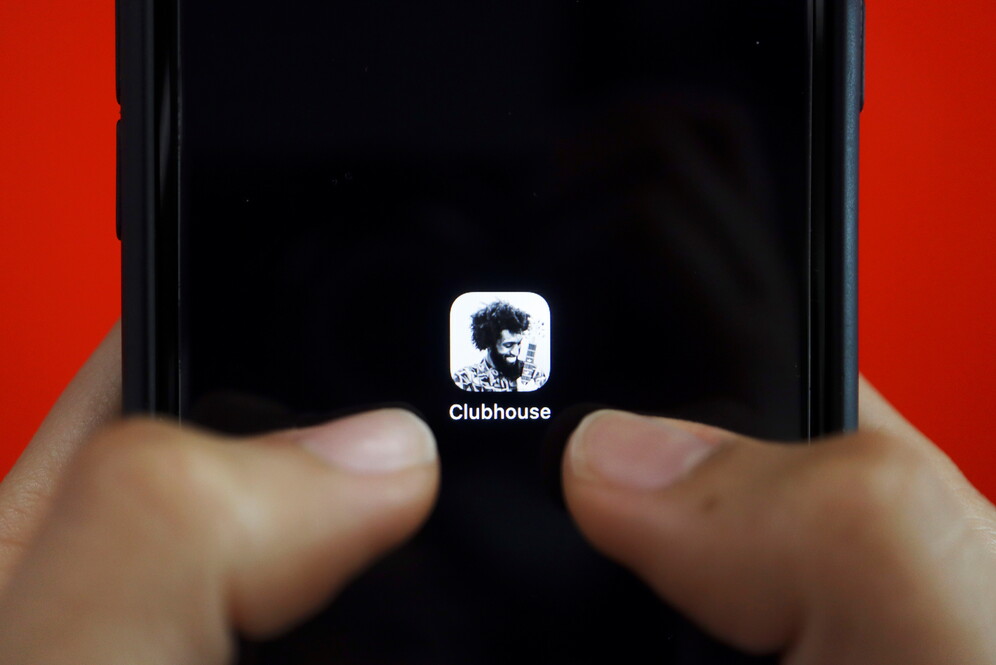
Welcome to the Club(house) — the hottest app you haven’t been invited to!
- What’s so different and enticing about the Clubhouse experience?
- Club Founders
- Who can join?
- Club Rules
- The Present & Future
- 1
What’s so different and enticing about the Clubhouse experience?
If you’ve recently been under the impression that Clubhouse is the talk of the town, you’re not mistaken. Everyone from Oprah to Elon Musk is suddenly obsessed with this new booming social media app. Should you be, too? Let us give you the lowdown on what this new kid on the block is all about.
 SpaceX founder and chief engineer Elon Musk/REUTERS by Steve Nesius
SpaceX founder and chief engineer Elon Musk/REUTERS by Steve NesiusUnlike good old visually and textually driven social media (the ones you’ve been on for ages), Clubhouse focuses on audio experiences. Currently, the app is ‘invite-only’, which obviously contributes to its cool exclusive club appeal. It offers podcast-like conversations any user can jump in and out of. Convos themselves are driven by contributors, among whom you’ll see major entrepreneurs, scientists, celebrities, and opinion-makers from across the globe — and ordinary people like us as well.
A cross between workshops and storytelling spaces, conversations (called ‘rooms’) happen in real time only, meaning they can’t be recorded or shared. Once a room ends, its conversations disappear forever. Plus, there’s no way to react to something that’s being said in a room unless you voice your reaction out loud. There’s no option to leave a comment or even ‘like’ something, which takes some getting used to. Everything that happens in a room, happens only then and there. This makes the experience very different from Facebook, Twitter, or Instagram, which revolve around sharing posts and statuses across platforms indefinitely.
- 2
Club Founders
Clubhouse’s popularity skyrocketed last month after tech mogul Elon Musk appeared on the Good Time audio broadcast together with Vlad Tenev — CEO of Robinhood, the online brokerage platform behind the GameStop stock surge. Their impromptu conversation quickly propelled the app to the top of the startup charts and Apple’s App Store downloads.
Clubhouse was founded in April of 2020 by Paul Davidson and Google’s Rohan Seth, who decided to capitalize on the new voice-only digital communication trend. Davidson was also a creator of Highlight — a now defunct app that let users broadcast their location and notified them when friends or someone with similar interests happened to be within a few blocks, thus bridging the gap between online and real-life interactions. Seth and Davidson worked together on the Talkshow app for scheduling and streaming live audio programs — which sounds very much like a Clubhouse prototype. Talkshow failed but gave them invaluable insights and guided them to success with their new venture.
- 3
Who can join?
Clubhouse boasts over 6 million users, which is a huge leap from the 2 million it had last month. It’s currently for iPhone only, so Android users are left out of the conversation — at least for now. To get in, one must receive an invite from an active community member. “We now allocate invites automatically based on contribution to the community,” the app says online, and each user gets somewhere from 3 to 8 invitations on average. The app is so hot these days that a black market has arisen, with invites being sold on Reddit, eBay, Alibaba, and the like. Even if you’re remotely interested and aren’t sure any of your friends are on Clubhouse, we suggest you download the app and put a hold on your preferred username — then wait for an invite to arrive. The number of users has been growing exponentially, so it’s only a matter of time before everyone gets invited to the club.
 The social audio app Clubhouse/REUTERS by Florence Lo/Illustration
The social audio app Clubhouse/REUTERS by Florence Lo/IllustrationOnce you’re in, the algorithm will use your phone’s contacts to search for friends on the app, and then will suggest other personalities you might want to follow. You can also select general topics you’re interested in from a list of options and, based on your search, Clubhouse will suggest rooms you might want to drop in to. One can really get lost browsing hashtags, topics, and people. This adds a certain aspect of serendipity — and not an entirely unpleasant one — when you stumble upon a conversation you wouldn’t dream of joining and then end up hooked.
With that said, members can create rooms — i.e., conversations — channeling topics of their choice. Rooms can be either Open, Social, or Closed. An open room is visible to anyone on the app, a social room is available only to one’s contacts, while a closed room means you handpick those allowed to join. Once you’ve created a room, all your followers get notifications, then the followers of those you have decided to join get them too — and the ball gets rolling. Most Clubhouse rooms have a TED-talk-meet-cocktail-party feel, where one can practice active listening and throw in questions and comments. If you’re hosting a room, you get to select speakers — and listeners, for that matter, if you wish to. But even if you’re only a listener, you can still ‘raise your hand’ and the speakers will invite you up to comment and contribute.
- 4
Club Rules
The main rule is: No recording allowed! Should you attempt to start recording with your iPhone, you’ll get a message saying you’re about to violate community guidelines, which can get you banned. However, if there’s a rule, there are always those ready to bend it: Elon Musk’s famous conversation was livestreamed on YouTube, making it available to those not on Clubhouse.
According to the company, it does not allow racism, hate speech, sexism, or abuse on the network, although conversations can sometimes get quite heated. Users who create their clubs on the app will have a say in setting rules for them. According to Business Insider, “Clubhouse has already hired moderators, while CEO Davidson has said that ‘Any social network needs to make moderation a top priority.’ However, he's also stressed that he wants the platform to center free speech and dialogue.” So, it looks like heavy moderation, as is the case with Facebook and Twitter, is something Clubhouse would rather distance itself from, at least for now.
- 5
The Present & Future
Recently valued at 1 billion dollars, Clubhouse is currently heading Apple’s App Store rankings in Germany, Italy, Japan, and Turkey. It was recently banned in China after just a brief uncensored stint. The ban reportedly came shortly after the Chinese segment began discussing China’s domestic and international politics. But politics isn’t the only thing that draws users into conversations: both in the UK and US, Clubhouse rooms have been used to run live auditions for shows and musicals, allowing hundreds of listeners to tune in and select a winner by popular vote — albeit via Twitter, since Clubhouse hasn’t got a voting function. In the Russian segment, there’s one major community called The Dacha (i.e., The Country Cottage), hosting conversations covering topics ranging from the importance of self-love to the future of venture capitalism.
Tesla’s CEO recently made waves by tagging the Kremlin's official account in a tweet and asking Russia’s president to join him in a conversation. After asking if Vladimir Putin would be willing to talk to him on Clubhouse, Elon Musk followed up with a tweet in Russian, saying: “It would be a great honor to speak with you.” Kremlin spokesperson Dmitry Peskov said the proposal was interesting but added, “We want to make sense of it first.”
In the meantime, it looks like some tech giants have already “made sense” of the popular new app and are willing to ride on its success. Facebook is reportedly building a product to compete with Clubhouse, and Twitter is testing a service called Spaces, which is its own take on live broadcasted conversations. Clearly, many people in the industry agree that audio will be a popular format for communicating and are trying to capitalize on it before the hype dies down.
What makes Clubhouse truly innovative is that, in order to fully participate, one must drop what they are doing and join in, which is radically different from scrolling a Facebook feed during a boring meeting or retweeting snippets of articles without ever reading them. Looks like being present and listening to what others have to say is the new ‘scrolling’. Hopefully, the trend gives Clubhouse the staying power it deserves.



